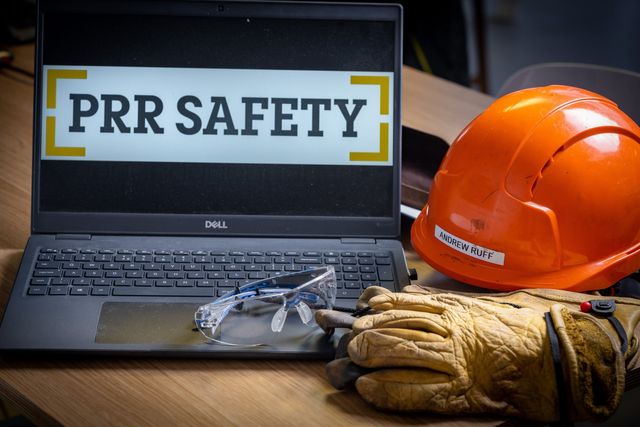

In an era where renewable energy reigns supreme as the beacon of sustainable power, the fusion of
health and safety principles has become pivotal. In addition to natural renewable sources, the
production of green hydrogen is also seen as a partial solution to reduce carbon emissions.
As we transition to renewable energy sources, the harmony between safeguarding lives and harnessing
nature’s forces has taken centre stage. This blog delves into the health and safety aspects in the
renewable energy sector, including the critical role of renewable hydrogen safety, highlighting its
significance in the era of clean power.
Renewable energy, often referred to as clean energy, offers a solution to the world’s escalating
environmental concerns. It harnesses the power of natural elements—sun, wind, water—to generate
electricity without depleting finite resources or emitting harmful greenhouse gases. Similarly, green
hydrogen is the cleanest and most sustainable hydrogen which generates no polluting emissions. Yet,
the journey to a cleaner, more sustainable, decarbonised global economy is not necessarily a smooth
one.
Green hydrogen, produced from renewable sources through electrolysis, is particularly beneficial for the
environment. However, as the demand for hydrogen continues to grow, there is a pressing need to
address safety concerns associated with its production, storage, and transportation, as well as
regulatory challenges.
Years of research and practical experience have led to the development of robust safety controls and
guidelines for handling and using hydrogen. However, this renewable energy source brings with it
unique safety challenges, such as its tendency to accumulate under indoor ceilings due to its low mass,
the difficulty in detecting its flames, and the potential for hydrogen-induced cracking in metal
containment vessels.
Government regulations set mandatory rules and standards for uniform safety requirements. Hydrogen
codes of practice, based on industry knowledge and experience, play a crucial role in promoting best
practices and minimising risks. Strict safety processes, and ongoing improvements in safety regulations
are required to ensure the safe utilisation of hydrogen for the future.
Solar energy, a symbol of sustainability, relies on photovoltaic panels to convert sunlight into electricity.
However, the installation and maintenance of these panels present unique challenges that demand
stringent health and safety protocols.
Solar energy not only promises a greener future but also requires a comprehensive approach to health
and safety for renewable energy. The installation of solar panels often involves workers navigating
heights and intricate electrical components, emphasising the need for rigorous fall protection and
electrical safety measures.
Clean energy, in the form of solar power, necessitates a culture of safety awareness and training.
Technicians conducting maintenance tasks must adhere to strict guidelines to mitigate risks like
electrocution or physical harm.
Wind turbines, towering giants harnessing the kinetic energy of the wind, stand as icons of clean energy
innovation. Yet, ensuring the safe operation and maintenance of these towering structures is
paramount.
Wind energy epitomises the transition to sustainable power sources, where safety plays an instrumental
role. Technicians climbing these turbines for maintenance must undergo rigorous training, employ
safety equipment, and follow stringent protocols.
Within the realm of clean energy, wind power stands as a testament to the synergy between technology
and safety in renewable energy. Blade inspections, a critical aspect of wind turbine maintenance,
demand specialised equipment and expertise to ensure the safety of workers.
Hydropower, generated by the movement of water, offers a timeless source of renewable energy.
However, the construction and operation of hydropower facilities come with their own set of safety
considerations.
Hydropower exemplifies the harmony between harnessing natural forces and health and safety for
renewable energy. Ensuring the safety of dam structures is paramount to prevent breaches that could
lead to catastrophic flooding.
Within the broader context of renewable energy sources, hydropower dam safety remains a focal point.
Technicians operating and maintaining hydropower turbines must adhere to extensive safety training to
prevent accidents in and around these powerful machines
Preserving Lives: The foundation of health and safety for renewable energy is the protection of the
dedicated workforce. Ensuring that every worker returns home safely each day is an uncompromisable
commitment in the realm of clean energy.
Operational Excellence: Safety and operational excellence are inextricably linked. When workers are
confident in their well-being’s priority, they can focus on tasks without distractions, thereby ensuring
renewable energy systems operate at peak efficiency.
Cost-Efficiency: While safety measures may entail initial investments, they yield long-term savings.
Accidents and injuries result in downtime, medical expenses, and potential legal ramifications. By
prioritising safety, companies not only save money but also uphold their reputation.
Environmental Guardianship: While renewable energy sources are designed to benefit the
environment, lapses in safety can lead to ecological harm. Proper handling of hazardous materials and
safety at hydropower facilities are critical aspects of environmental stewardship.
Compliance and Trust: Compliance with safety regulations and industry standards is not only a legal
requirement but also a matter of trust. Companies that prioritise safety gain favour in the eyes of
customers,
In our pursuit of a cleaner and more sustainable future, health and safety’s role in renewable energy
stands as an unwavering commitment. The transition to renewable energy sources goes beyond
reducing carbon emissions; it focuses on preserving lives and strengthening our dedication to a better
world. Health and safety measures weave an invisible yet unbreakable thread, ensuring each step
towards cleaner energy is secure and sustainable.
Safety is our priority. Contact us today to discuss any aspect of your health and safety needs. Tel: 01223
893 998.